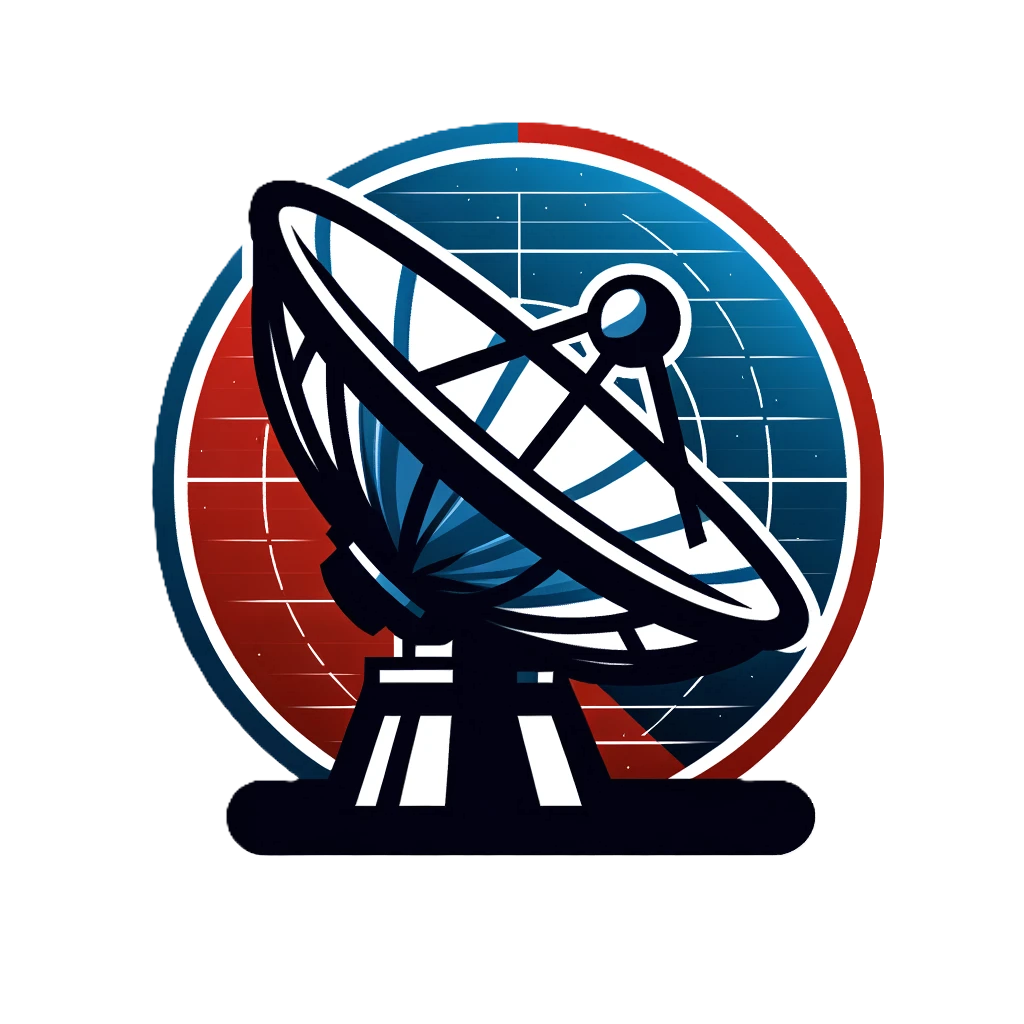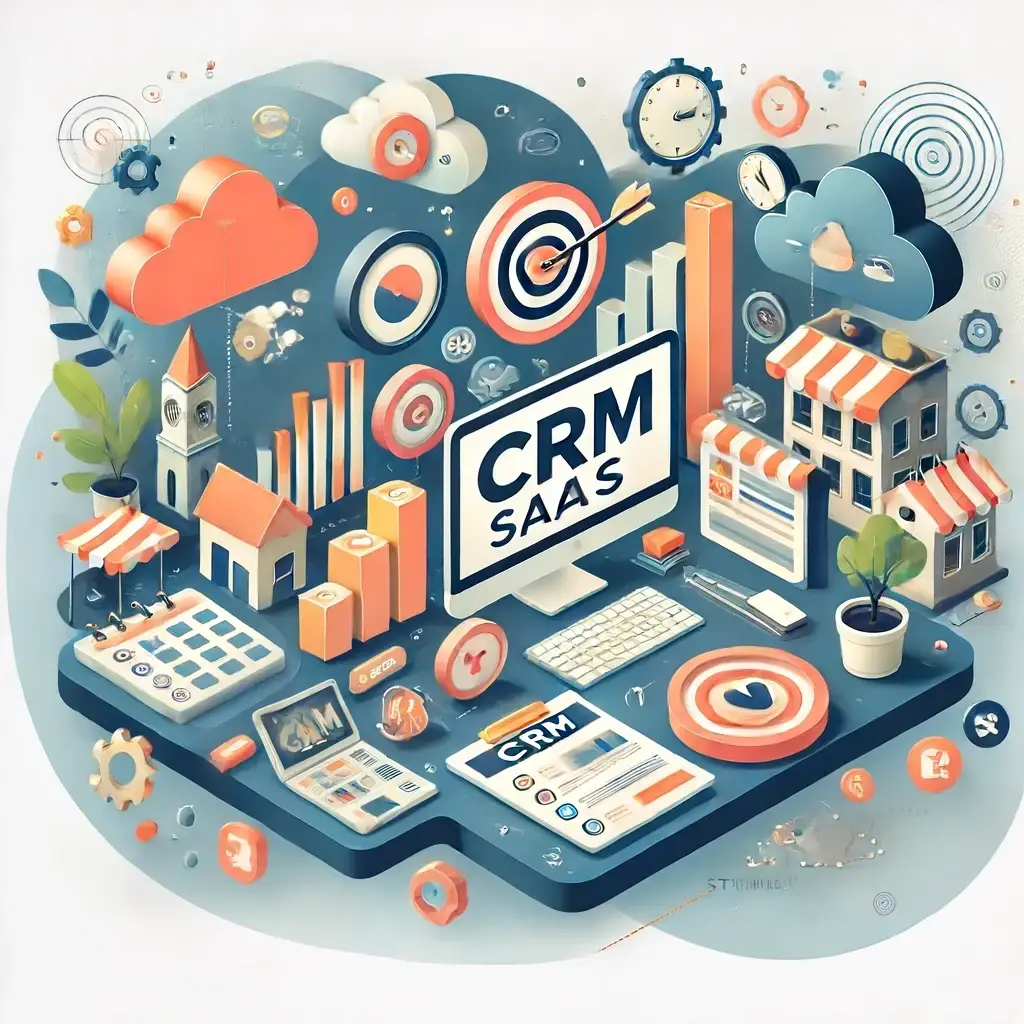Small businesses face the challenge of managing customer relationships effectively while also striving for growth and efficiency. Customer Relationship Management (CRM) systems have become indispensable tools in achieving these goals. They help small businesses streamline operations, enhance customer satisfaction, and drive sales.
Implementing the right CRM can transform the way a company interacts with its customers, providing invaluable insights and fostering long-term loyalty. As we delve into the topic, we’ll explore the best SaaS CRM for small businesses, offering insights into how these powerful tools can elevate your business operations and customer management to the next level.
What is a CRM?
A Customer Relationship Management (CRM) system is a technology solution designed to help businesses manage their interactions with current and potential customers. It centralizes customer data, streamlines communication, and automates various sales and marketing processes. By keeping track of customer information, purchase history, and preferences, a CRM enables businesses to offer personalized experiences and improve customer satisfaction.
For small businesses, a CRM is particularly crucial. It provides a structured way to handle customer information, ensuring that no opportunities are missed and that all interactions are consistent and professional. With limited resources, small businesses can greatly benefit from the efficiency and insights a CRM offers, helping them compete with larger enterprises.
Yes, there is indeed a CRM for small businesses. These systems are specifically designed to be affordable, user-friendly, and scalable to meet the unique needs of smaller enterprises. The benefits include improved customer relationships, enhanced productivity, and better data management, all of which contribute to business growth and success.
Benefits of Using a CRM for Small Business
Implementing a CRM system offers numerous advantages for small businesses, enhancing their ability to thrive in a competitive market. Let’s see more in detail.
Improved Customer Relationships
A CRM helps maintain and enhance customer relationships by providing a 360-degree view of each customer. It tracks interactions, preferences, and purchase history, enabling personalized communication and targeted marketing efforts. This personalization fosters loyalty and ensures customers feel valued and understood.
Streamlined Operations
CRM systems streamline business processes by automating routine tasks such as data entry, follow-up emails, and appointment scheduling. This automation reduces manual workload, minimizes errors, and frees up valuable time for employees to focus on more strategic activities, enhancing overall operational efficiency.
Enhanced Productivity
By centralizing customer information and automating tasks, CRMs significantly boost productivity. Sales teams can quickly access detailed customer profiles and past interactions, enabling them to respond promptly and effectively. Marketing teams can deploy targeted campaigns with ease, while customer service teams can resolve issues faster with comprehensive customer data at their fingertips.
Data Management
A CRM offers robust data management capabilities, centralizing all customer information in one accessible location. This eliminates data silos, ensures data accuracy, and provides valuable insights through analytics and reporting tools. With better data management, small businesses can make informed decisions, identify trends, and optimize their strategies for growth.
Key Features to Look for in a Small Business CRM
Selecting the right CRM for your small business involves identifying key features that will support your growth and streamline your operations.
User-Friendly Interface
A user-friendly interface is crucial for ensuring that your team can quickly adapt to and efficiently use the CRM system. An intuitive design minimizes the learning curve, reduces training time, and increases overall productivity. This ease of use ensures that your staff can focus on customer relationships rather than struggling with complex software.
Scalability
Your CRM should be able to grow with your business. Scalability means that as your business expands, your CRM can handle an increasing number of contacts, more sophisticated workflows, and additional users without compromising performance. This ensures that your investment remains valuable over the long term.
Customization Options
Every business has unique needs, and a good CRM offers customization options to tailor the system to your specific requirements. Whether it’s custom fields, personalized dashboards, or tailored reporting, the ability to customize ensures that the CRM aligns perfectly with your business processes.
Integration Capabilities
A CRM that integrates seamlessly with other business tools—such as email marketing platforms, accounting software, and e-commerce systems—enhances overall efficiency. Integration capabilities ensure that data flows smoothly between different applications, reducing manual data entry and improving accuracy.
Mobile Accessibility
In today’s fast-paced business environment, mobile accessibility is essential. A CRM with robust mobile features allows your team to access customer information, update records, and manage tasks on the go. This flexibility ensures that your team can stay productive and responsive, regardless of their location.
Affordable Pricing
For small businesses, cost-effectiveness is a key consideration. The CRM should offer a pricing structure that provides good value without sacrificing essential features. Look for a CRM that offers flexible pricing plans, including options for scaling up as your business grows, ensuring that the system remains affordable and aligned with your budget.
Top Recommendations: Best SaaS CRM for Small Business
When searching for the best SaaS CRM for small businesses, it’s important to consider options that offer a balance of functionality, ease of use, and affordability. Here are three top recommendations:
HubSpot CRM
Overview: HubSpot CRM is a widely favored option among small businesses, renowned for its comprehensive free plan and intuitive user interface. It provides an extensive suite of tools designed to help businesses manage customer relationships efficiently. With HubSpot CRM, small businesses can streamline their sales processes, improve customer engagement, and enhance overall productivity.
Key Features: HubSpot CRM stands out with its robust feature set. Its contact and lead management capabilities allow businesses to organize and track customer interactions seamlessly. The email tracking and templates feature enables users to monitor email engagement and automate communication with personalized templates. The sales pipeline management tool offers a visual representation of the sales process, helping businesses track deals and identify opportunities. Additionally, HubSpot CRM integrates effortlessly with popular tools such as Gmail and Outlook, ensuring smooth workflow and data synchronization across platforms.
Pros and Cons: HubSpot CRM boasts several advantages, making it a popular choice for small businesses. Its ease of use ensures that even those with limited technical expertise can navigate the system efficiently. The robust free version provides substantial functionality without incurring costs, making it an attractive option for budget-conscious businesses. Moreover, HubSpot CRM’s excellent integration capabilities allow seamless connectivity with other essential business tools.
However, there are some limitations to consider. While the free version is powerful, accessing advanced features can be expensive, potentially straining the budgets of small businesses. Additionally, the free plan offers limited customization options, which might be a drawback for businesses with specific and unique needs. Despite these cons, HubSpot CRM remains a highly effective solution for many small businesses, providing essential tools to manage and nurture customer relationships.
Zoho CRM
Overview: Zoho CRM is a versatile and highly customizable platform that is well-suited for small businesses seeking flexibility and scalability. With a variety of pricing plans, Zoho CRM caters to different business needs and budgets, making it an attractive option for businesses at various stages of growth. Its robust features and adaptability allow small businesses to tailor the CRM system to their specific requirements, ensuring optimal performance and efficiency.
Key Features: Zoho CRM excels with its customizable dashboards and modules, allowing businesses to design their interface and workflows to match their unique processes. The sales automation feature streamlines repetitive tasks, freeing up time for the sales team to focus on closing deals and building relationships. Zoho CRM also integrates seamlessly with Zoho’s extensive suite of applications, providing a cohesive ecosystem for managing various business functions. Additionally, the mobile app offers on-the-go access, enabling teams to stay connected and productive from anywhere.
Pros and Cons: Zoho CRM offers numerous advantages, particularly its affordable pricing, which makes it accessible to small businesses with limited budgets. The platform’s high level of customization ensures that businesses can create a CRM system that aligns perfectly with their needs. The mobile app is another strong point, providing flexibility and convenience for users who need to manage their CRM tasks while away from the office.
The initial setup can be complex, requiring time and effort to configure the system to meet specific requirements. Additionally, support for lower-tier plans can be slower, which might be a concern for businesses that need prompt assistance. Despite these drawbacks, Zoho CRM remains a powerful and adaptable solution, offering significant value and capabilities for small businesses aiming to enhance their customer relationship management.
Freshsales
Overview: Freshsales, a key component of the Freshworks suite, is specifically designed to assist small businesses in managing sales leads and customer relationships with ease and efficiency. This CRM system features an intuitive interface and robust automation capabilities, making it an ideal choice for businesses looking to streamline their sales processes and enhance customer engagement.
Key Features: Freshsales offers a range of powerful features that set it apart. Its AI-based lead scoring system intelligently prioritizes leads based on their likelihood to convert, helping sales teams focus their efforts on high-potential prospects. The built-in phone and email functionalities enable seamless communication directly within the CRM, ensuring all interactions are tracked and recorded. The visual sales pipeline provides a clear, organized view of the sales process, allowing teams to manage deals more effectively. Additionally, workflow automation simplifies repetitive tasks, boosting overall productivity and efficiency.
Pros and Cons: Freshsales comes with several notable advantages. Its intuitive user interface makes it easy for users to navigate and utilize the system effectively. The strong automation features significantly reduce manual work, allowing teams to concentrate on strategic tasks. Moreover, Freshsales is known for its good customer support, providing reliable assistance to users.
The platform has limited third-party integrations, which might be a drawback for businesses relying on a diverse set of tools. Additionally, some advanced features are only available in higher-tier plans, which could increase costs for businesses needing those capabilities. Despite these cons, Freshsales remains a highly effective CRM solution for small businesses, offering essential tools to manage sales leads and customer relationships efficiently.
How to Choose the Right CRM for Your Small Business
Choosing the right CRM for your small business involves several crucial steps. First, assess your needs by identifying specific business requirements. Determine what features are essential for your operations, such as contact management, sales automation, or reporting capabilities. Next, consider your budget. It’s important to determine how much you can invest in a CRM without straining your finances. Look for a solution that offers good value for money, keeping in mind the potential return on investment.
Additionally, take advantage of trial periods and demos. Many CRM vendors offer free trials or demo versions of their software. Use these opportunities to test the CRM’s features, interface, and overall usability to ensure it meets your needs. Lastly, evaluate the customer support and training provided by the vendor. Reliable support is crucial, especially during the initial setup and learning phase. Check if the vendor offers comprehensive training resources, responsive customer service, and ongoing support to help you get the most out of the CRM system.
Conclusion
In summary, choosing the right CRM is essential for small businesses aiming to enhance customer relationships, streamline operations, and boost productivity. A well-chosen CRM system can provide invaluable insights, improve data management, and support business growth. As you consider your options, remember to explore the features, scalability, and cost-effectiveness of each solution to find the best fit for your needs. We encourage you to take the next step and explore the best SaaS CRM for small businesses, ensuring that you select a tool that will drive your business forward and help you achieve lasting success.

